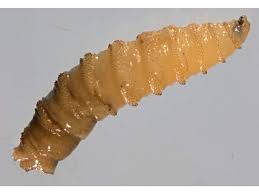By Atoyebi Nike
The United States has confirmed its first human case of New World screwworm, a parasitic fly that feeds on living tissue, in a Maryland resident who had recently returned from El Salvador, where an outbreak is spreading.
According to the U.S. Centres for Disease Control and Prevention (CDC), the patient began showing symptoms shortly after returning and was diagnosed on August 4, 2025. The U.S. Department of Health and Human Services (HHS) confirmed the case on August 24.
“Screwworm larvae literally eat living tissue, which can cause serious and potentially life-threatening infections if not treated promptly,” CDC Director Dr. Rochelle Walensky warned. She urged travelers to seek immediate medical attention if symptoms appear after visiting outbreak zones.
HHS spokesperson Dr. Anthony Fauci said the government is treating the case as a high priority: “We are taking this very seriously and working with Central American health agencies to prevent further spread.”
The parasite, which more commonly infects livestock, poses a major agricultural threat. Dr. Jose Ortega, a senior veterinary official at the U.S. Department of Agriculture (USDA), noted that infections in cattle can cause deep, difficult-to-treat wounds and result in billions of dollars in losses.
In response, the USDA is constructing a sterile fly facility in Texas and has temporarily suspended cattle imports from Mexico. Mexico is also ramping up its own sterile fly production, while Panama’s existing program is struggling to contain the outbreak moving north through Central America.
No U.S. animal cases have been detected so far in 2025. However, experts stress that a single human infection is a stark reminder of the need for vigilance. “Early detection and treatment are essential to protect both public health and agriculture,” Dr. Walensky said.
